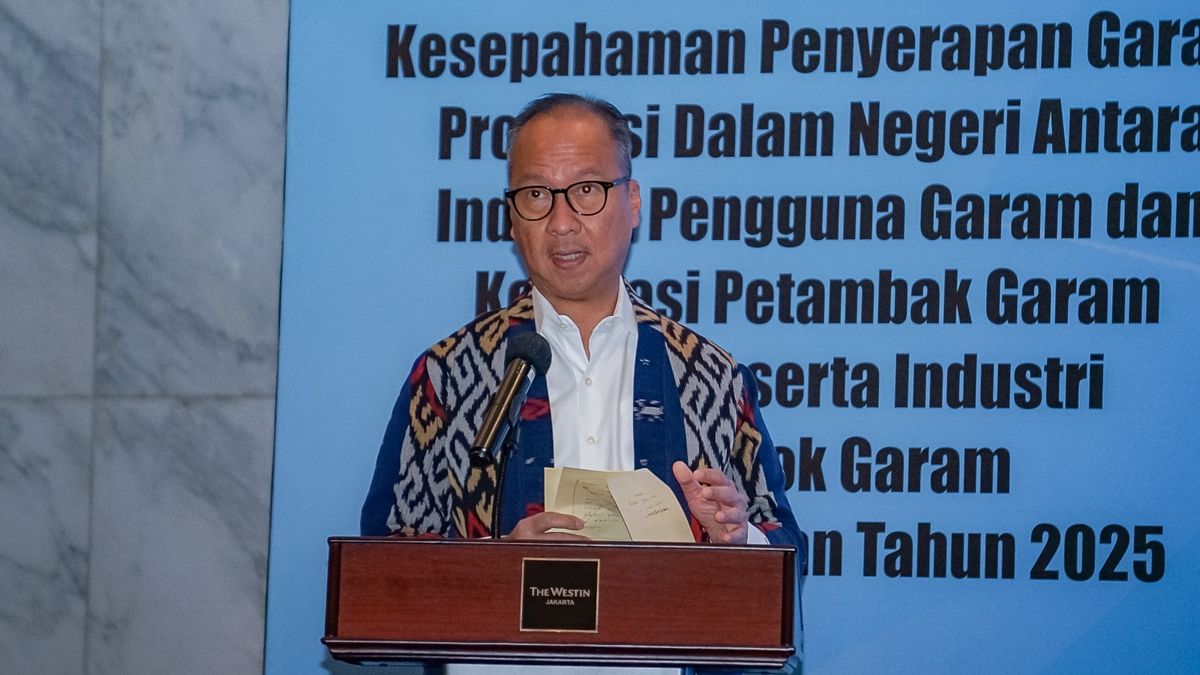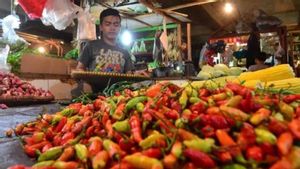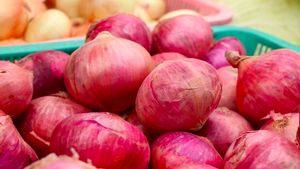The Ministry of Industry (Kemenperin) facilitates the signing of the Local Salt Absorption Memorandum (MoU) between entrepreneurs and salt farmers in order to support the absorption of local salt.
Minister of Industry (Menperin) Agus Gumiwang Kartasasmita said this memorandum of understanding would be a strategic step for the government to increase domestic salt production as mandated in Presidential Regulation (Perpres) Number 126 of 2022 concerning the acceleration of national salt development.
"This effort is a manifestation of the Ministry of Industry's commitment to seriously pay attention to salt farmers and encourage the absorption of domestic salt by the user industry," Agus said in a written statement, quoted on Tuesday, November 19.
In addition, this memorandum of understanding will be a bridge for the government with the Salt User Industry, the National Salt Ponder Cooperative (KPGN) and the Salt Supply Industry.
"Hopefully, this memorandum of understanding can be a connecting bridge between the National Salt Petambak Cooperative and the processing industry and salt users in an effort to strengthen the industrial supply chain in the plantation sector," he said.
Agus hopes that the signing of the Local Salt Absorption memorandum of understanding between entrepreneurs and salt farmers is not just a formality, but can boost domestic salt production.
"I hope that this signing is not only in the form of a gimmick, but requires a high commitment and responsibility from all parties so that it can be realized," he said.
According to Agus, currently the obligation to absorb domestic salt only applies to the salt processing industry used in the food and beverage industry. However, he revealed that the Chlor Alkali Plant (CAP) industrial sector, which requires 2.3 million tons of salt, has not been required to use local salt.
Therefore, Agus said, his party continues to strive so that this industry will begin to reduce dependence on imports and prioritize the procurement of domestic salt.
BACA JUGA:
Furthermore, Agus also invited CAP industry players to collaborate using domestically produced salt. "By testing the use of local salt as raw material, we can see the potential to increase industrial resilience while empowering domestic salt farmers," he said.
This MoU also marks the active role of the pharmaceutical salt industry, which now uses local salt in its production, with four producers of pharmaceutical salt raw materials that have been formed in Indonesia. This shows that the quality of domestic salt is increasing, especially in meeting higher industrial standards.
Through this collaboration, the Ministry of Industry hopes that the quality of domestically produced salt will increase, strengthen food security and industrial raw materials and improve the welfare of national salt farmers.
The English, Chinese, Japanese, Arabic, and French versions are automatically generated by the AI. So there may still be inaccuracies in translating, please always see Indonesian as our main language. (system supported by DigitalSiber.id)
















